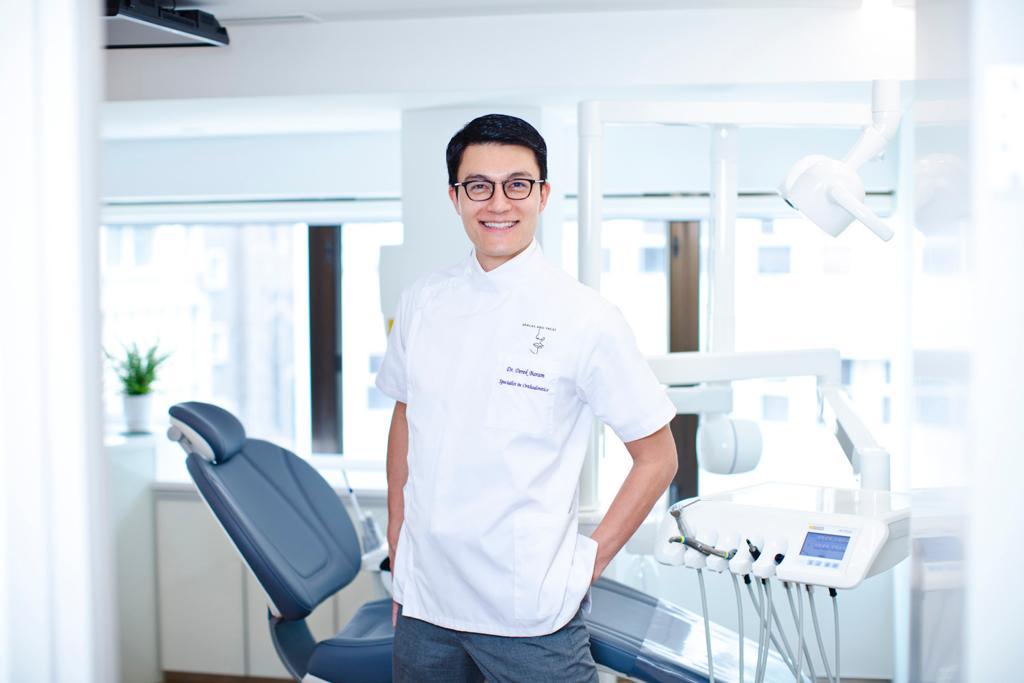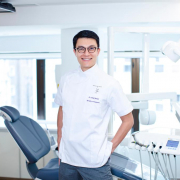
Ask the dentist: Essential daily oral hygiene products
Monthly column by Dr. Derek Baram, Specialist Orthodontist, Director of Central Smile, and Founder of Braces & FacesElectric toothbrush or manual toothbrush?
Studies generally don’t suggest a significant difference between manual and electric toothbrushes. But no studies conclude that manual brushes are better than electric brushes. In other words, electric toothbrushes might be better, the same but not worse than manual brushes. Clinical experience tells us that electric toothbrushes generally improve one’s brushing. It makes brushing easier and built-in timers in more modern electric brushes are particularly useful. I also like the pressure sensors in fancier models as it serves as a friendly reminder not to brush too hard. I often compare it to driving automatic and manual cars, both work but ones just easier.
Is tongue scraper necessary?
I cannot recommend this enough. Millions of bacteria and food particles reside on the rough surfaces of the tongue leaving a white coat on the surface. This can lead to bad breath (halitosis) and increase the amount of cavity causing bacteria in the mouth.
Using a tongue scraper is more comfortable (less gagging) and efficient than brushing the tongue, some reports suggest that it also improves the sense of taste.
Is mouthwash useful?
Not really is the short answer. It’s not a substitute for good brushing and flossing twice a day for two minutes as it doesn’t mechanically remove plaque or food debris.
However, mouthwash can be supportive of good oral health by:
(1) rinsing after meals when brushing or flossing is not always convenient, like in the office or when travelling.
(2) using alkaline based rinses that help buffer an “acid attack” from sour things we consume like coffee, certain fruits (eg pineapples, plums, grapes), citric juices, sports drinks and even certain vegetables like tomatoes, kale, spinach and asparagus. It’s not necessary to avoid the healthy stuff like most fruits and vegetables, as our saliva can deal with mild acidic challenges. It’s the unhealthy processed stuff and citrus fruits that can make it so acidic that the saliva can’t buffer it quickly enough before it erodes our teeth. Those situations an alkaline based mouth rinse is useful. Unfortunately, they aren’t easy to find in local stores and usually have to be ordered online.
(3) Mouthwashes with fluoride can be useful for people who don’t brush or floss well (remember it’s not a replacement!) or are undergoing fixed braces treatment, as fluoride helps to harden and remineralise our teeth. Fluoride also affects the metabolic activity of cavitiy causing bacteria.
(4) Recently, hydrogen peroxide mouthwashes have been more popular. They have been recommended for dental practices as a pre-rinse before appointments during COVID pandemic as it releases oxygen to kill viruses and bacteria in the mouth. This same property makes it useful for patients who have gum disease, sore throats from bacterial infections, or patients with canker sores as it kills bacteria and removes dead cells.
(5) Certain lubricating and alkaline based mouthwashes are great for people who have dry mouth (xerostomia) due to certain diseases, medication, ageing or irradiation therapy in cancer treatment.
(6) For children who are old enough to spit out, mouthwash can be fun and educational for them as it highlights the importance of good diet, oral hygiene and fluoride.
Popular alcohol based mouthwashes are generally not recommended. The alcohol can promote dry mouth and is slightly acidic. By wiping out good and bad bacteria in the mouth it wipes the slate clean to promote the proliferation of cavitiy causing bacteria that generally prefer a more acidic environment. After all, that’s how cavities are formed by bacteria metabolising sugar in our diet and producing acids that erode away enamel.
How important is flossing?
A dentist almost always knows if a patient is a flosser even without asking, simply by looking at the gum (papilla) health between the teeth. Gums are supposed to be well defined with sharp edges that are salmon pink in colour. Puffy and deep red looking gums is a sign of gum disease.
Studies generally show the highest incidence of caries (cavities) are on the biting surfaces of the adult back molars and between the teeth. This is most likely attributed to poor flossing habits and grooves on the biting surface that can be more challenging to keep clean.
It is imperative that flossing habits occur daily as tartar (hardened plaque) forms after 1-3 days, which makes it difficult to clean without a professional clean.
Children should start to floss as soon as their teeth come into contact with one another. Floss picks are recommended and it sets children up for a good lifetime habit.
Read more: Braces and Faces offers dental treatments for adults and children




